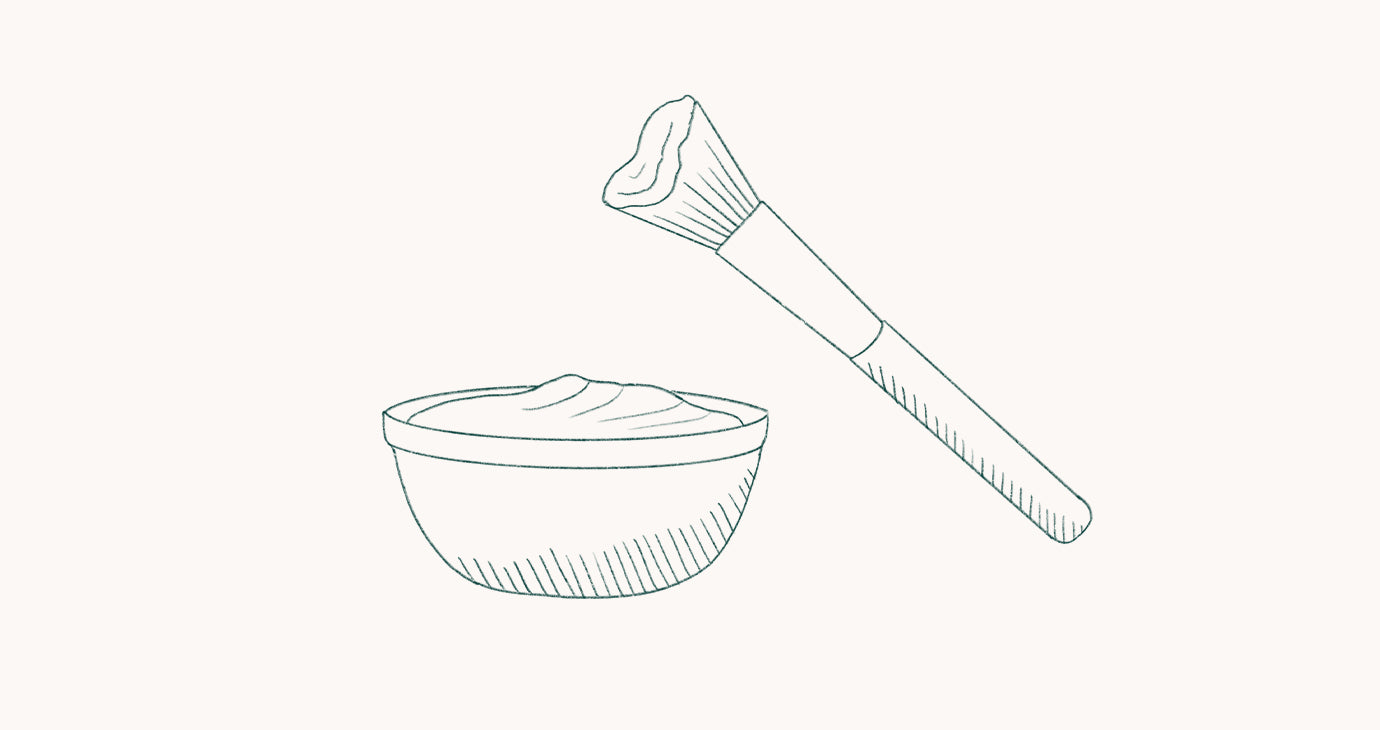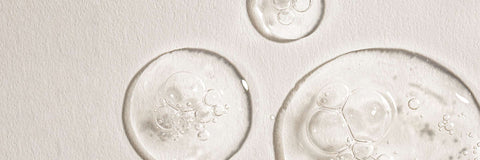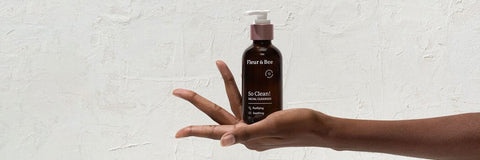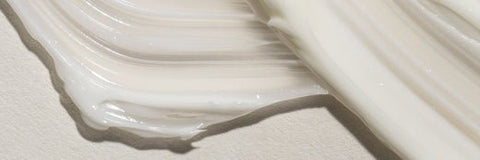If you’re more familiar with charcoal as something that gets your backyard grill going, we’re here to tell you it has other uses! (And whatever you do, do not use that kind of charcoal on your face– it’s treated with some really gnarly chemicals and definitely does not belong on your skin.) Using charcoal face masks helps to draw out impurities in your skin and unclog your pores, making them great for many skin types.
In this article, we’re going to look at charcoal mask benefits, how charcoal masks work and why they’re worth using, which charcoal mask you should use, and how to use a charcoal mask.
IN A NUTSHELL
Main Takeaways: Charcoal masks deep clean your pores, removing excess dirt, oil, and bacteria. They also have some exfoliating properties, so your skin will feel smoother after use.
Good to Know: There are several different types of charcoal that can be used in a charcoal mask including bamboo charcoal, coconut charcoal, and binchotan charcoal.
Recommended Products: Prince Charcoal Detox Mask.
How Charcoal Masks Work and Why They’re Worth Using
It’s not always affordable or easy to get to the facialist. But sometimes daily cleansing just isn’t enough. From time to time, your skin needs a deep cleanse that your daily cleanser just can’t give you. Here is where a charcoal mask comes into play– if you can’t get a spa facial, these will help get you similar results at home.
Charcoal masks, as we’ll see below, are like high-powered vacuums for the skin that essentially suck up all the excess dirt and oil that ordinarily refuses to budge from your pores. Unlike housekeeping, however, a charcoal mask leaves your skin feeling revitalized and rejuvenated.
Charcoal Mask Benefits
- Charcoal masks remove impurities – Activated charcoal has the ability to adsorb bacteria and toxins, thereby removing impurities from your pores. Adsorbing means that the charcoal essentially sticks to particles so they can be pulled out.
- Charcoal masks cleanse – Of course, you still need to use a facial cleanser, but a charcoal mask works to deep clean your skin of the dirt and oils your cleanser doesn’t reach.
- Charcoal masks balance oils – Speaking of oils, one of the great things about charcoal masks is that it soaks up excess oil from the skin, balancing the skin, and renewing the look of beautiful skin.
- Charcoal masks smooth the skin – The exfoliating properties in charcoal masks help smooth out rough skin.
- Charcoal masks prepare the skin for make-up – Smoother skin results in better makeup application.
- Charcoal masks your serums and moisturizers to work more effectively – Because your skin is now free from pore-clogging impurities, your serums and moisturizers will be able to absorb deeper into your skin and be more effective.

Which Charcoal Masks Should You Use?
There are more than a few types of charcoal masks on the market. Let’s talk about them:
- Activated charcoal – Activated charcoal is a bit of an umbrella term for a carbon-heavy substance, such as coal, that’s been heated at very high temperatures. The heat causes little bubbles to form. When applied to the skin, the bubbles in that charcoal, which is now called activated charcoal, act as a sponge, pulling out impurities and leaving the skin clean.
- Bamboo charcoal – Working much the way regular charcoal works, bamboo is full of little holes that basically grab onto the junk in your skin and take it with them.
- Coconut charcoal – Yes, believe it or not, if you heat up coconut shells, you basically turn them into little charcoal sponges that work like crazy to remove dirt and oil from your skin.
- Binchotan charcoal powder – Also referred to as white charcoal, binchotan charcoal is made from Japanese oak trees. Like other forms of charcoal, it essentially pulls out impurities like dirt and oil from the skin.

One of the great things about charcoal masks for the skin is that powdered charcoal can be combined with so many other ingredients, depending on what your goal is.
Here are just a few of the ingredients that combine well with charcoal. Please note—we don’t mean all together; these are just some options that pair well:
- Honey has humectant properties that add moisture to the skin.
- Apple cider vinegar is great for unclogging pores and balancing pH levels
- Bentonite clay is similar to charcoal in that it removes impurities from the skin, but it can also be used with charcoal to balance the natural oils in your skin and help create the appearance of a brighter, smoother complexion.
- Kaolin clay draws out the impurities from skin and exfoliates it.
- Botanical oils, from lavender to jojoba seed oil to rosehip seed oil to grapeseed oil, bind skincare products together and add a lovely scent. They also help soften and condition mature skin, protect skin from environmental stressors, and balance the skin.
- Coconut oil will bind the ingredients of a mask together and add moisturizing properties.
- Salt or sugar both make a great facial and body scrubs.
As always, you want to avoid chemical “baddies” like sulfates, artificial fragrances, parabens, and GMOs!

What Skin Types Should Use Charcoal Masks?
As with all beauty products, charcoal masks work best when used on the right skin types. Here are how different skin types should use charcoal masks:
- Charcoal masks for pores that clog easily – Charcoal masks are known for their ability to draw out impurities from the skin. If you have pores that get easily clogged, a good charcoal mask will help create the appearance of a brighter, smoother complexion.
- Charcoal masks for oily skin – Charcoal masks balance oils in the skin like nobody’s business, working to rid of excess oils in the skin.
- Charcoal masks for skin that wears a lot of make-up – Are you someone who wears make-up every day? That probably means a lot of dirt and oil are finding their way into your pores. Even if you cleanse daily, a charcoal mask will help your skin get the reset it needs.
- Charcoal masks for dry skin – You might be thinking that charcoal would only dry skin further; but in fact, by exfoliating the skin, they help your moisturizer do a better job, so those with dry skin should definitely use a charcoal mask regularly.
- Charcoal masks for dull skin – By helping to slough off the top layer of dead skin, charcoal masks give skin back their brilliance.

How to Use a Charcoal Mask
If you’ve never used a facial mask before, it’s pretty simple. Here’s how to use a charcoal mask:
1. Start by cleansing your skin with a gentle cleanser.
2. Now apply a charcoal mask like our Prince Charcoal detox mask to your entire face, avoiding the eye area. It’s made for all skin types and takes about 8 to 10 minutes to draw out impurities, cleanse your pores, and nourish the skin. A thin but opaque layer should do the trick.
3. Rinse with warm water, or use a soft facial sponge or cloth to remove the mask.
4. Follow up with your normal routine: toner, serum, eye cream, and moisturizer.
It’s really that simple. We recommend using Prince Charcoal one to three times a week.
Frequently Asked Questions About Charcoal Masks
Do charcoal masks work?
Yes, charcoal masks definitely work! Almost nothing short of a professional facial will get dirt, oil, and other impurities out of the skin like a really good charcoal mask. We call ours a “spa in a jar” for that very reason.
Are charcoal mask filters safe?
Talk about a sign of the times! Today, a charcoal mask could mean the kind you use or your skin or it could mean a filter you use in a face mask to prevent the spread of diseases. Many of those filters are made from carbon, which, when heated, produces activated charcoal, much like the one used in facial masks for skin care.
While we can’t vouch for the efficacy of those filter inserts, they are safe to use.
Charcoal masks vs. clay masks
Though it really depends what specific masks you’re talking about, charcoal masks are generally associated with detoxifying the skin by getting rid of impurities and dirt. Although clay masks do the same thing, they also tend to give the skin a smoother-looking appearance by balancing natural oils and renewing the look of beautiful skin. Get the best of both worlds with Prince Charcoal detox mask, which features coconut charcoal and bentonite clay.
What do charcoal masks do?
Charcoal masks work to deep clean your pores, removing excess dirt, oil, and other impurities. They also have some exfoliating properties, so your skin will feel smoother after use.









